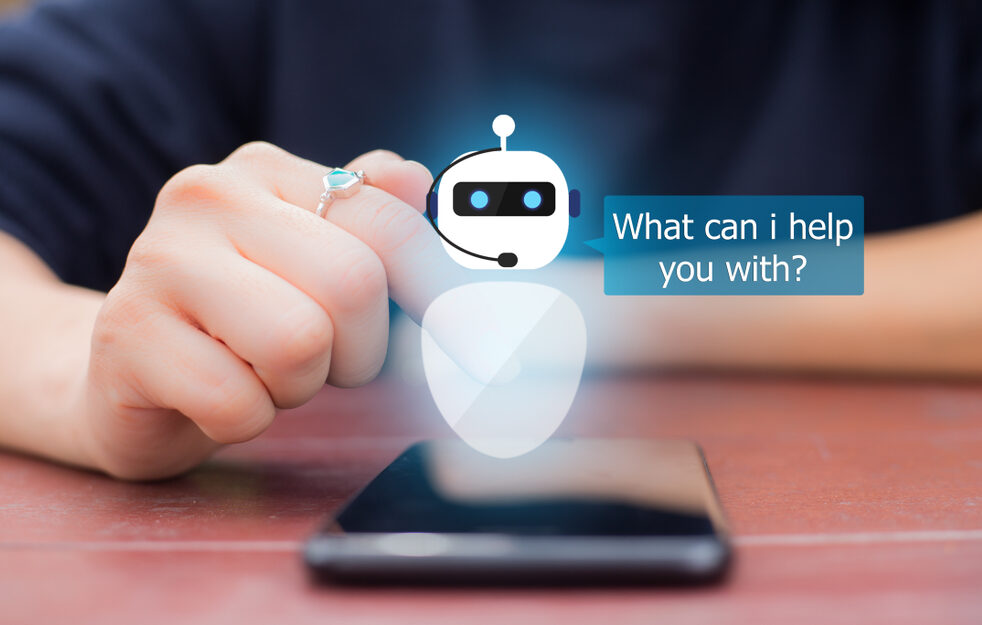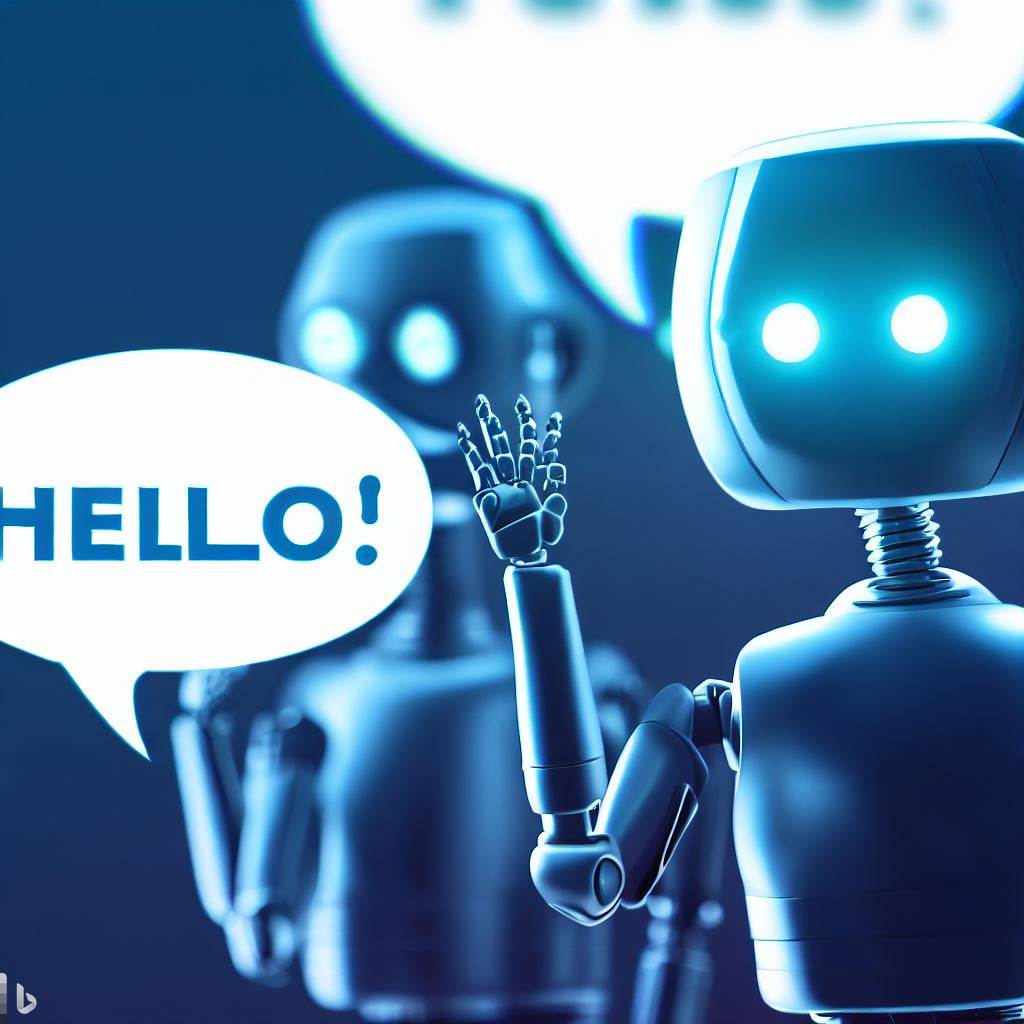AI-powered chatbots are transforming various sectors, from healthcare to finance, retail, education, and more with their ability to provide personalized interactions and support at any time of the day. Chatbots are enhancing customer experience, increasing efficiency, and reducing costs for businesses. They are becoming an indispensable tool for companies looking to stay competitive and meet the evolving needs of their customers. let us discuss how
What are AI-Powered chatbots?
AI-powered chatbots are computer programs that use AI and natural language processing (NLP) to simulate human-like conversations with users. The designers program these chatbots to understand and interpret natural language input from users and respond with appropriate answers or actions. Integrating them into various messaging platforms and websites allows them to provide instant customer service and support to usersProgrammers can program
AI-powered chatbots handle a wide range of tasks, such as answering customer inquiries, providing product recommendations, scheduling appointments, and even making purchases. They are becoming increasingly popular in various industries.

How AI chatbots are different from traditional chatbots?
AI-powered chatbots, also known as “AI chatbots”, are more advanced than traditional chatbots in several ways.
They are capable of understanding natural language, which allows them to interact with users more naturally and in a conversational manner and AI-powered chatbots are built using machine learning algorithms that allow them to recognize patterns in user input and respond accordingly, rather than simply relying on pre-programmed responses.
When compared to traditional chatbots that are limited to predefined tasks, AI chatbots can handle more complex and personalized interactions. So, they provide users with more accurate and relevant information, which can increase customer satisfaction and engagement.
AI chatbots can learn and improve over time by gathering insights from user interactions, which helps refine their responses and enhance their performance. In contrast, traditional chatbots require explicit training for every scenario and cannot self-learn.
Benefits of AI-powered chatbots
24/7 Availability

AI-powered chatbots have the ability to provide round-the-clock service to customers. Unlike human customer service representatives, chatbots do not need to sleep, take breaks or go on vacation. This means that customers can get help whenever they need it, day or night.
Cost-Effective
Hiring and training customer service representatives can be a significant expense for businesses, especially for those with limited resources. Chatbots, on the other hand, can be created and programmed at a lower cost, making them a cost-effective alternative to hiring human agents.
Personalization
AI-powered chatbots can analyze customer behavior and purchase history to make personalized product recommendations. They can use advanced algorithms to provide recommendations that are more accurate and relevant to the customer’s interests.
Improved Response Time
Chatbots are able to respond to customer queries much faster than human agents. This is because chatbots can process and analyze large amounts of data in a short amount of time, allowing them to provide instant responses to customers.
Scalability
As businesses grow, so does their customer base. AI-powered Chatbots can easily handle an increased volume of customer queries without any additional resources or training required. This makes them a scalable solution for businesses of all sizes.
Consistency
Chatbots are programmed to provide consistent responses to customers, which helps to ensure a high level of service quality. Unlike human agents, chatbots do not have bad days, personal biases, or moods that can impact their interactions with customers.
Order tracking
Chatbots can provide customers with updates on their order status and shipping information. This can help improve the transparency of the order process and reduce customer support inquiries.
Product recommendations
Chatbots can analyze customers’ browsing and purchase history to suggest relevant products that they may be interested in. This can improve cross-selling and upselling opportunities for the business.
Multilingual Support
AI-powered chatbots can be programmed to communicate with customers in multiple languages, making them an ideal solution for businesses with a global customer base.
Impact of AI-powered Chatbots on various industries
E-commerce
AI chatbots are already enhancing customer experiences and streamlining operations for e-commerce businesses. For example, H&M implemented an AI chatbot on their Kik messenger account that suggests outfits based on user preferences and searches. Sephora also introduced a chatbot on Kik that assists customers with product discovery, promotions, and make-up appointments.
AI chatbots can assist customers with a wide range of tasks, such as providing product recommendations, tracking orders, answering questions about products and services, and processing payments. This 24/7 support can lead to higher customer satisfaction levels and increased sales. Additionally, chatbots can analyze customer data.
E-commerce businesses that integrate AI chatbots into their strategy can benefit from increased efficiency, cost savings, and improved customer experiences. The examples of H&M and Sephora demonstrate the potential of AI chatbots in the e-commerce industry.
Banking and Finance
AI-powered chatbots can enhance customer service by providing personalized support and addressing routine inquiries, which allows human staff to concentrate on more challenging tasks. Additionally, AI can assist with investment management by analyzing market data and identifying trends, which can lead to improved investment decision
Intelligent chatbots can easily categorize and align sales and marketing data and can provide analytics, customer personas, and market trends so leaders can make real-time decisions. Chatbots boost workforce efficiency, reduce operational costs, and improve the service delivery process.
Banking chatbots like Erica from Bank of America, Capital One Assistant, Finn from JP Morgan Chase, and HSBC’s Virtual Assistant enable customers to access services such as checking account balances, transferring funds, and paying bills. AI chatbots such as Swell Investing and Plum assist users with sustainable investments and saving money by analyzing their spending habits. Cleo and Ally Assist offer financial advice, insights into spending patterns, and assist with account management.
Healthcare
AI chatbots can greatly impact the health industry by providing 24/7 patient support, assisting in symptom checking and diagnosis, improving medication management, and streamlining appointment scheduling. AI Chatbots can also collect and analyze patient data to provide personalized treatment plans and assist healthcare professionals in making more informed decisions. AI chatbots can increase patient satisfaction, reduce costs, and improve the efficiency of healthcare services.
Some examples of AI chatbots in healthcare include Buoy Health, which helps patients identify symptoms and find medical care; Your.MD, which offers health advice and symptom checkers; Woebot, which provides mental health support; Safedrugbot, which helps manage medication prescriptions; and Florence, which assists with medication reminders and symptom tracking.
Education
AI chatbots can transform the education industry by offering personalized learning experiences and providing round-the-clock assistance to students. AI chatbots can help students with tasks such as answering frequently asked questions, providing course information, and assisting with assignments. This can free up educators’ time to focus on teaching and providing more individualized attention to their students.
chatbots can also analyze student data and behavior to offer personalized recommendations for courses, assignments, and learning materials. This can lead to improved academic performance and student satisfaction.
AI chatbots in education include Duolingo for language learning, Gradescope for automated grading, Quizlet for personalized studying, Brainly for real-time academic Q&A, Coursera for personalized course recommendations, IBM Watson Tutor for personalized tutoring, and Teachable for course creation and management assistance.
Home appliance automation
AI chatbots are increasingly being integrated into home appliances to enhance user experience and provide more efficient and personalized services. For instance, LG’s AI-powered chatbot, Proactive Customer Care, can diagnose issues with appliances and provide quick solutions.
Whirlpool’s chatbot, Yummly, offers recipe recommendations based on user preferences and dietary restrictions. Whirlpool customers can control their appliances through voice chatbot with Google Voice or Amazon Alexa.

Samsung’s SmartThings app features an AI chatbot that enables users to control and monitor their connected home devices through voice commands.
Philips LED smart bulbs are compatible with voice, Users can instruct the bulbs through voice assistants to dim or change colors. chatbots in home appliances are aimed at making our lives easier and more convenient by simplifying tasks and providing intelligent solutions.
GE has launched the GE Kitchen Hub, a complete smart kitchen that can be controlled by Voice and mobile apps.
Nest launched Nest Learning Thermostat, a smart thermostat with self-learning capabilities that can be controlled by Amazon Alexa or a mobile appBelkin’s Wemo automation appliances have smart plug-in switches, lights, security cameras, and so on. These can be paired with Amazon Echo or Google Home.
Restaurant Industry
Chatbots have become an increasingly popular tool for businesses to enhance customer service offerings. With the ability to offer 24/7 customer service and integrate within social media platforms, chatbots are a cost-effective solution that can benefit businesses of all sizes. By studying customer behavior and trends, businesses can proactively deliver on-demand information through push notifications and personalized promotions.
In the food industry, popular chains like Pizza Hut, KFC, Domino, Starbucks, and McDonald’s have already adopted AI-powered chatbots to improve their customer experiences. 24/7 patient support. In addition, chatbots can send personalized discounts and promotions, and be available on social media platforms to answer customer inquiries and offer support.
By integrating chatbots into their business strategies, companies can enhance their customer engagement and satisfaction levels. With thier potential to provide valuable insights into customer behavior and preferences, chatbots can also help businesses to tailor their marketing strategies and improve their products or services.
We can say AI chatbots are transforming various industries by offering personalized and efficient services to customers. With advancements in natural language processing and machine learning, chatbots are becoming more intelligent and capable of handling complex tasks. In the future, AI, and chatbots will transform various industries.
FAQs
